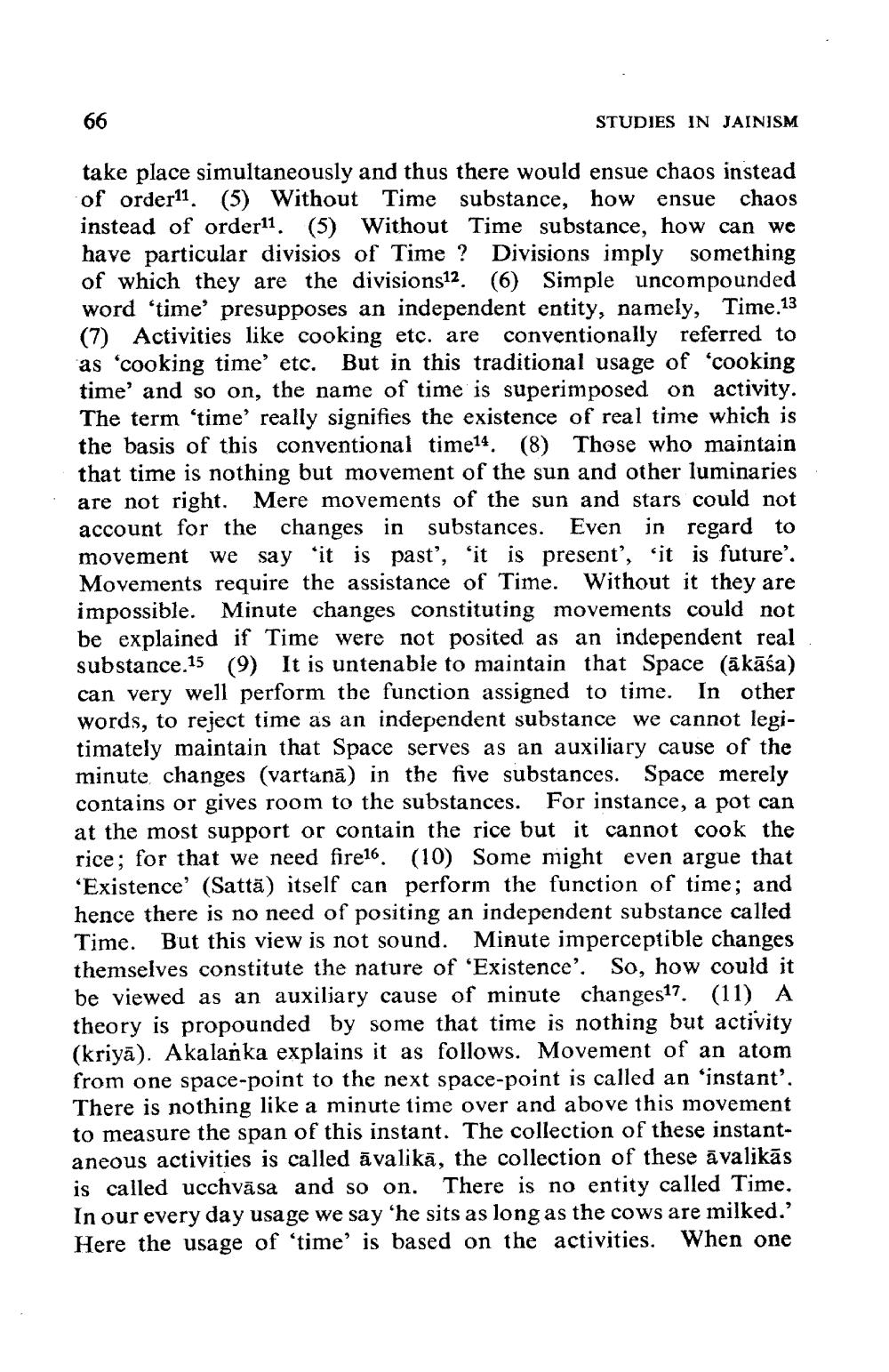________________
66
STUDIES IN JAINISM
take place simultaneously and thus there would ensue chaos instead of order11 (5) Without Time substance, how ensue chaos instead of order11 (5) Without Time substance, how can we have particular divisios of Time ? Divisions imply something of which they are the divisions12 (6) Simple uncompounded word 'time presupposes an independent entity, namely, Time.13 (7) Activities like cooking etc. are conventionally referred to as 'cooking time' etc. But in this traditional usage of 'cooking time' and so on, the name of time is superimposed on activity. The term 'time' really signifies the existence of real time which is the basis of this conventional time14 (8) Those who maintain that time is nothing but movement of the sun and other luminaries are not right. Mere movements of the sun and stars could not account for the changes in substances. Even in regard to movement we say “it is past, it is present, “it is future'. Movements require the assistance of Time. Without it they are impossible. Minute changes constituting movements could not be explained if Time were not posited as an independent real substance.15 (9) It is untenable to maintain that Space (ākāśa) can very well perform the function assigned to time. In other words, to reject time as an independent substance we cannot legitimately maintain that Space serves as an auxiliary cause of the minute changes (vartanā) in the five substances. Space merely contains or gives room to the substances. For instance, a pot can at the most support or contain the rice but it cannot cook the rice; for that we need fire16 (10) Some might even argue that 'Existence' (Sattā) itself can perform the function of time; and hence there is no need of positing an independent substance called Time. But this view is not sound. Minute imperceptible changes themselves constitute the nature of Existence'. So, how could it be viewed as an auxiliary cause of minute changes17. (11) A theory is propounded by some that time is nothing but activity (kriyā). Akalanka explains it as follows. Movement of an ato from one space-point to the next space-point is called an 'instant'. There is nothing like a minute time over and above this movement to measure the span of this instant. The collection of these instantaneous activities is called āvalikā, the collection of these is called ucchväsa and so on. There is no entity called Time. In our every day usage we say "he sits as long as the cows are milked.' Here the usage of 'time' is based on the activities. When one




